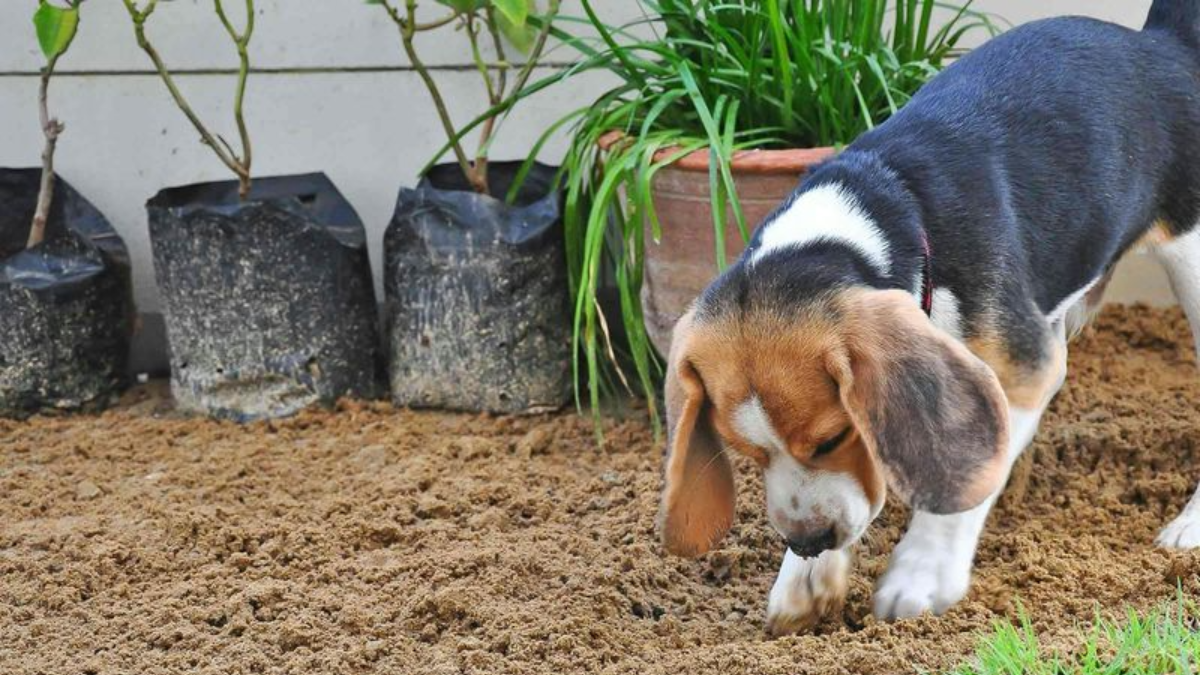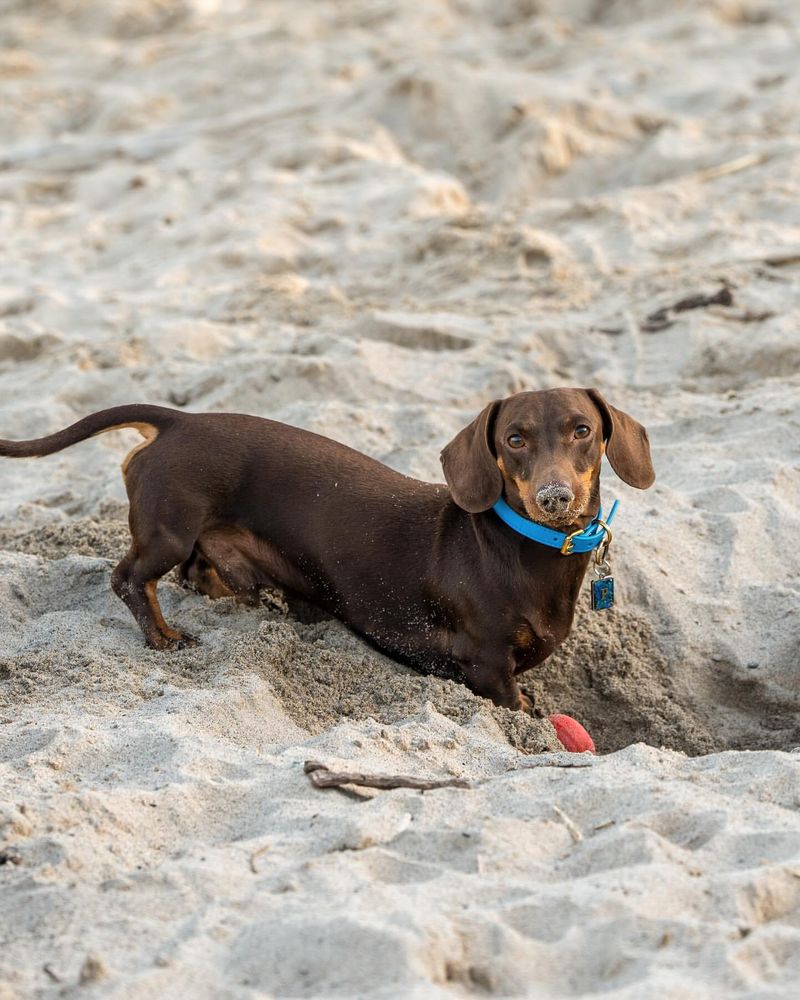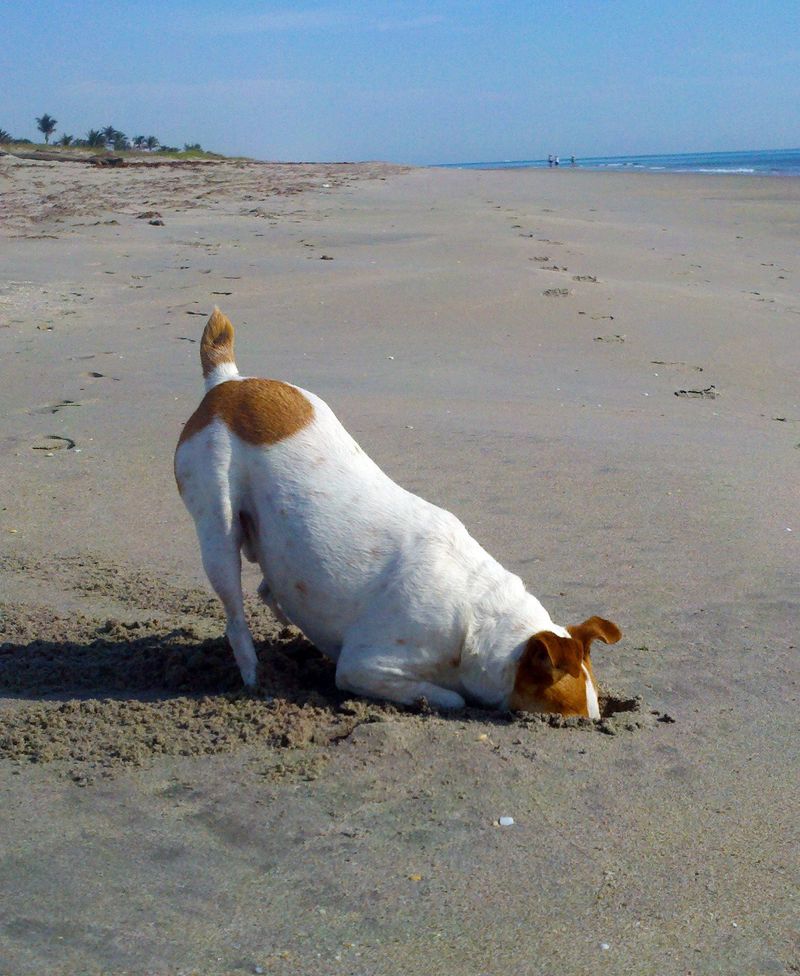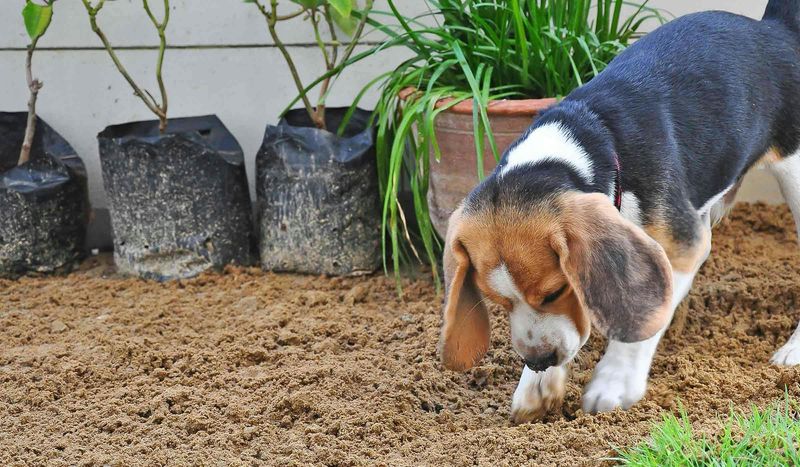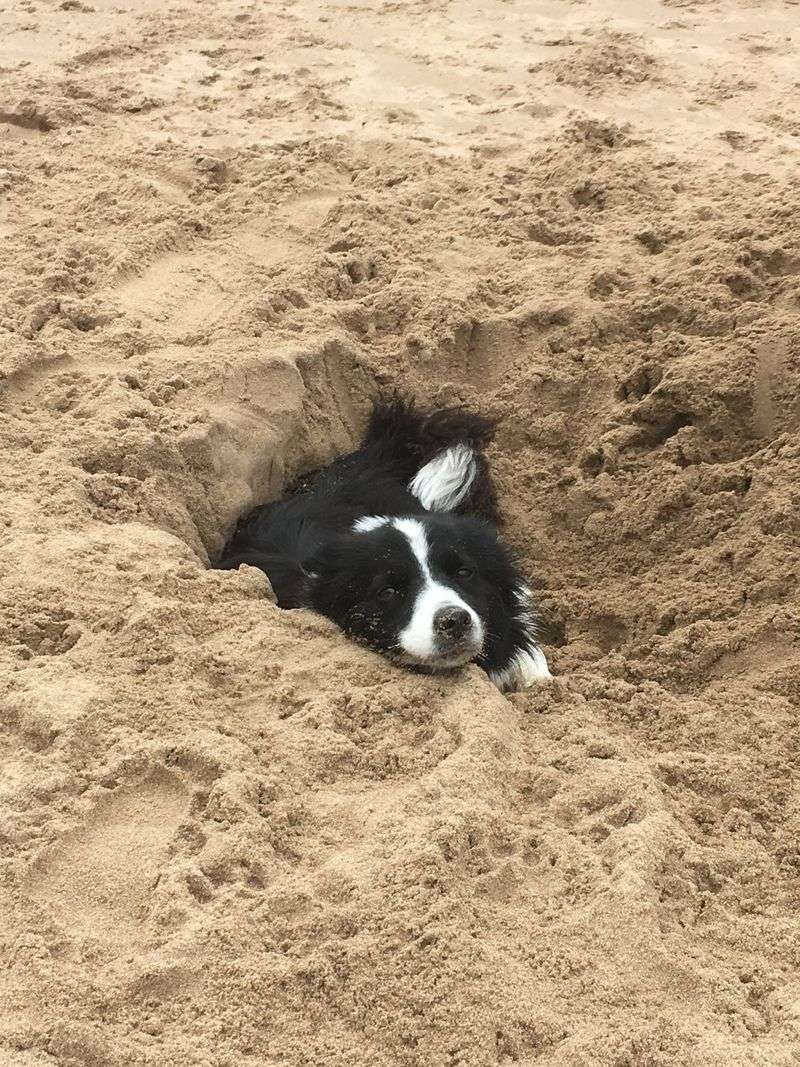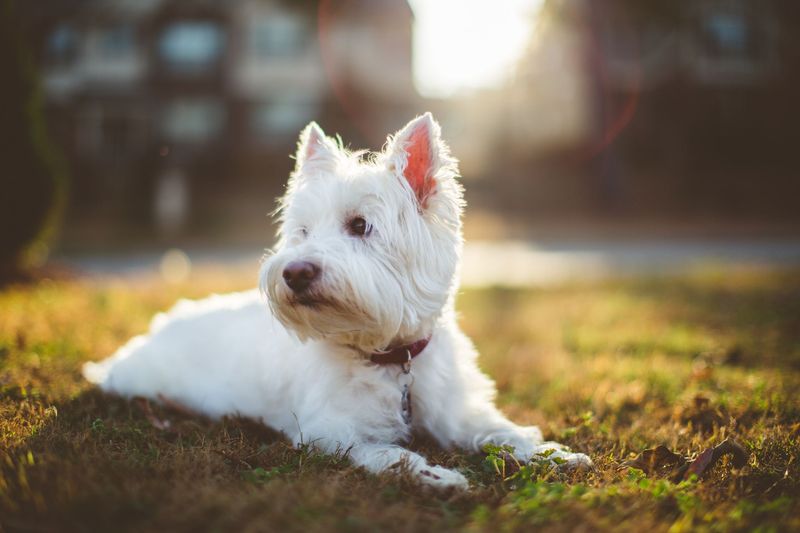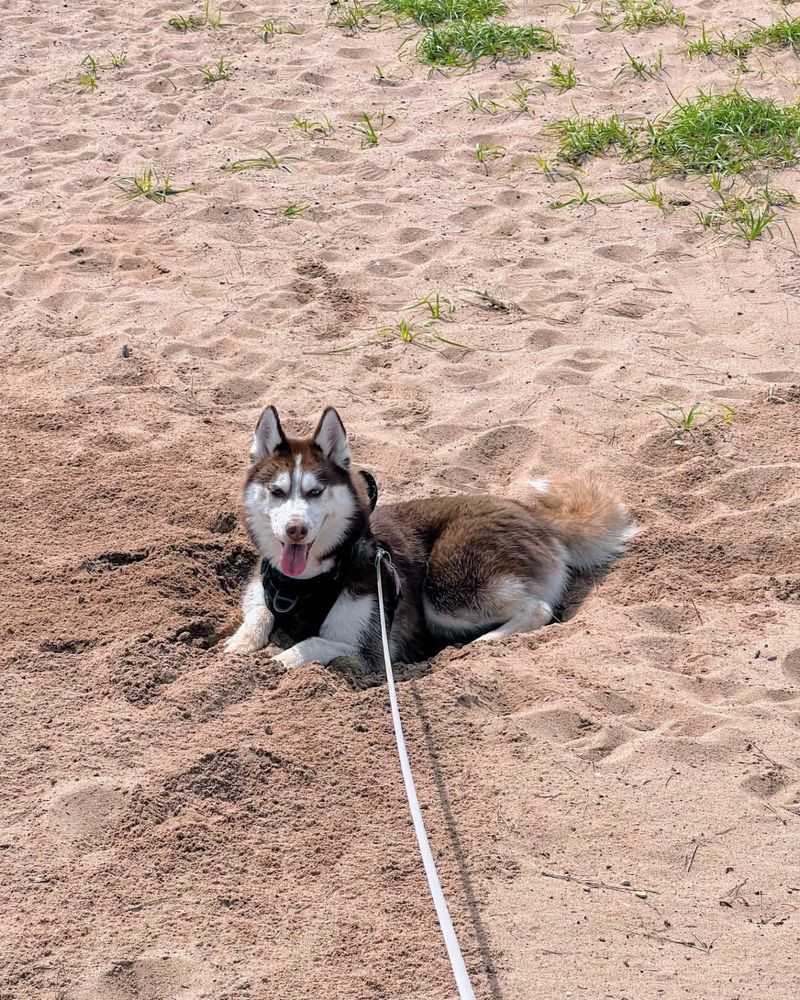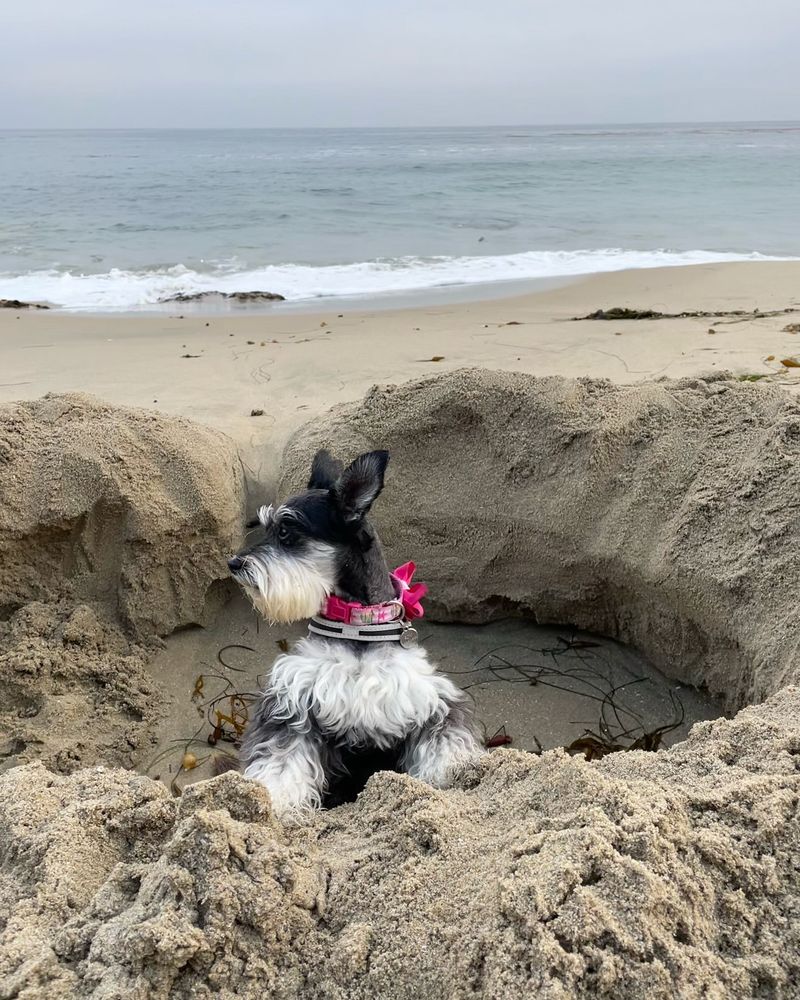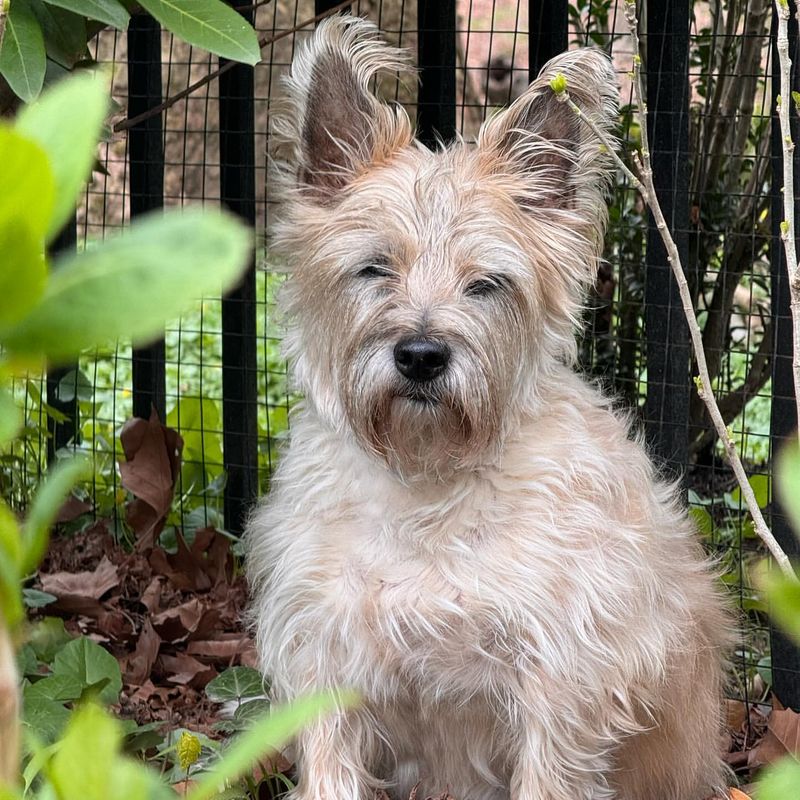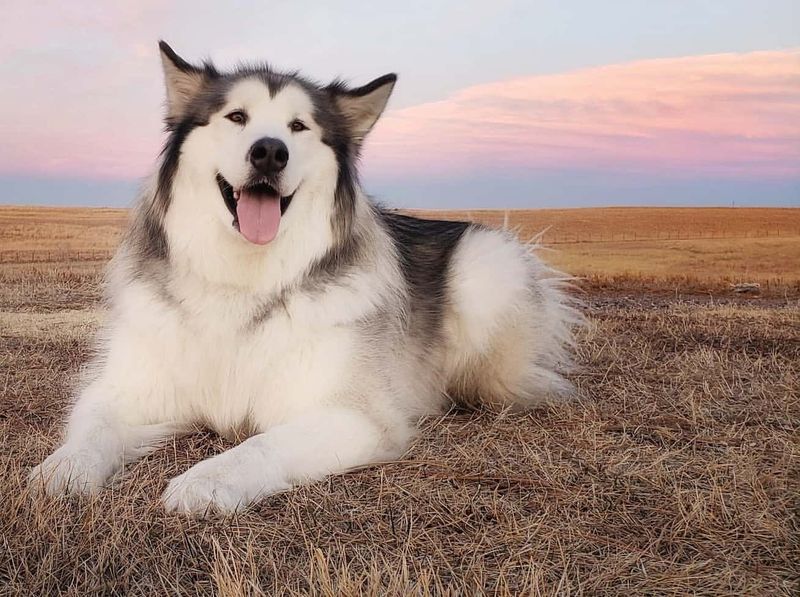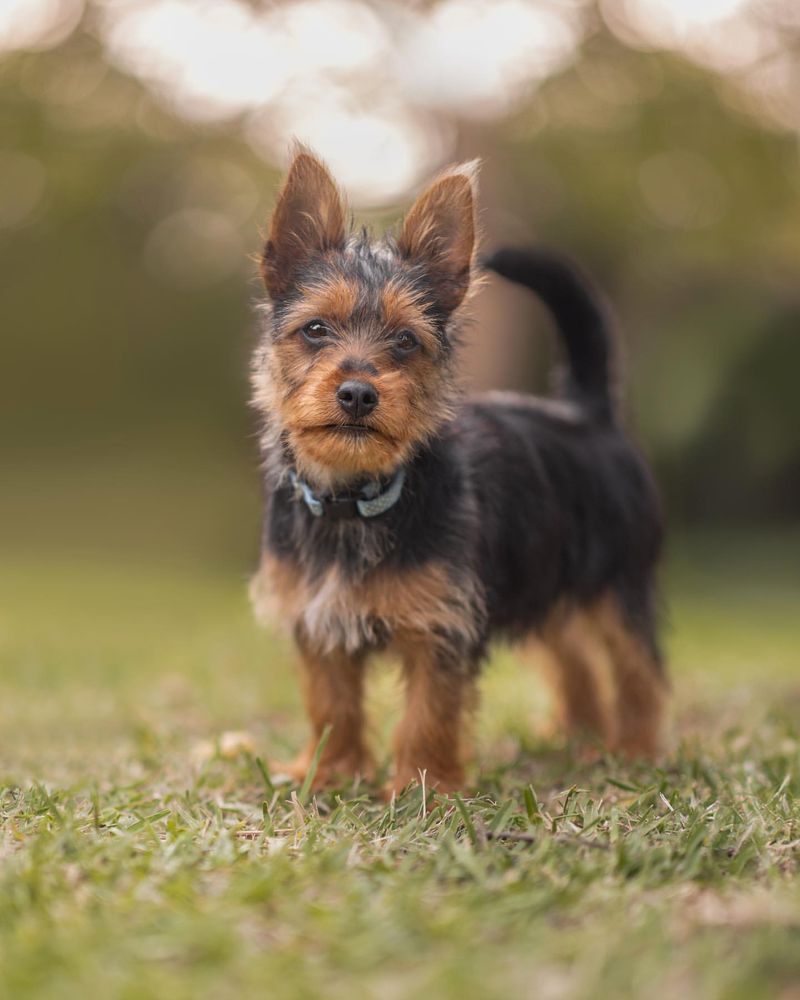📖 Table of Content:
If your backyard looks like a lunar landscape, chances are you have a dog that’s a professional digger. Some pups just can’t resist the call of the dirt—it’s in their DNA!
Whether they’re unearthing hidden treasures, making a cool spot to nap, or following the scent of some mysterious underground critter, certain breeds are natural-born excavators.
In this article, we’ll introduce you to 11 dog breeds that are practically archaeologists at heart. From terriers with a nose for adventure to hounds that dig for sport, these dogs are all about paws in the ground and tails in the air.
1. Dachshund
The Dachshund, with its long body and short legs, was originally bred to hunt badgers and other burrowing animals. This makes them natural diggers. Their instinctual desire to dig stems from their hunting background, and they will happily dig in gardens or soft soil to satisfy their urge.
Owners of Dachshunds often find them burrowing under blankets or furniture, a behavior that mimics digging. These dogs are determined and energetic, using their paws and snouts to tunnel through the earth. Their digging habit can be managed by providing them with a designated digging area.
Keeping them entertained with toys and regular exercise also helps redirect their energy. Despite their small size, Dachshunds have a big personality, which includes a love for the outdoors and exploration.
2. Jack Russell Terrier
Originally bred for fox hunting, their digging instincts are deeply embedded. They often dig out of boredom or a desire to chase small creatures lurking underground.
These terriers possess a strong prey drive, making digging a natural outlet for their hunting instincts. Providing a specific spot for them to dig can help manage this behavior. Keeping them mentally stimulated with games and training sessions is also beneficial.
Despite their size, Jack Russells have an adventurous spirit, always ready for action. This breed thrives on physical activity and enjoys participating in sports like agility. Their tenacity in digging is matched by their loyalty and love for their owners.
3. Beagle
The Beagle is a curious and merry breed, known for its excellent sense of smell and tracking abilities. Originally bred for hunting, Beagles love to dig as part of their instinctual behavior to unearth scents and hidden treasures.
Their digging often occurs when they catch an intriguing scent, compelling them to dig deeper to discover the source. Beagles are pack animals, and regular social interaction and outdoor play can help curb excessive digging.
Engaging them in scent-based games and providing chew toys can keep them entertained. Beagles are friendly, gentle, and make great family pets, but their digging habit might require some patience and understanding.
4. Border Collie
Their energetic nature and working heritage make them prone to digging as a way to release pent-up energy and explore their surroundings.
Owners can channel this energy into positive activities such as herding trials or agility exercises, reducing the need for digging. Border Collies are highly trainable, meaning digging behaviors can often be redirected with consistent training.
These dogs thrive on mental and physical challenges. Providing puzzle toys, fetch games, and ample exercise can help prevent undesirable digging. Despite their occasional digging, Border Collies are loyal and hardworking companions, eager to learn and please.
5. West Highland White Terrier
The Westie is a spirited dog with a love for digging. Originally bred to hunt vermin, their digging instinct is part of their natural prey drive. Westies often dig when they sense something lurking below or out of sheer enjoyment.
Managing their digging involves giving them ample exercise and providing mentally stimulating activities. Creating a specific digging spot can also satisfy their instinct without wreaking havoc on your garden.
Westies are bold, confident, and affectionate, making them excellent family pets. Their digging habit can be curbed with training and patience, ensuring they get the mental and physical stimulation they crave. These terriers are always up for an adventure, displaying both charm and tenacity.
6. Airedale Terrier
Often called the “King of Terriers,” this breed possesses a strong instinct to dig. Known for their intelligence and versatility, Airedales were originally bred to catch otters and rats, which required digging skills.
Their digging can be attributed to both their historical purpose and their inquisitive nature. Providing them with a dedicated digging area and engaging them in obedience training can help manage this behavior.
Airedales are active, friendly, and protective, enjoying time with their families. They excel in various dog sports, which helps channel their energy constructively. While their digging may sometimes be a challenge, Airedales bring joy and vitality to any home, making them cherished companions.
7. Siberian Husky
Bred to pull sleds in harsh climates, they often dig to create a cool spot to rest or as a means of escape.
Their digging habit is part of their natural survival instincts and can sometimes be managed by providing a cool, shaded area. Regular exercise and mental stimulation also help reduce unnecessary digging.
Huskies are independent and free-spirited, often requiring patient training. They thrive in active households where their energy and intelligence are appreciated. Despite their mischievous nature, Huskies form strong bonds with their families, combining beauty with a zest for life.
8. Miniature Schnauzer
This small breed is determined and tenacious, frequently digging out of curiosity or play.
To curb excessive digging, owners can provide designated areas and engage them in challenging activities. Puzzle toys and interactive games also help keep them occupied.
Schnauzers are affectionate and sociable, making excellent companions. Their digging habit can be part of their charm if managed properly. With their expressive eyebrows and spirited nature, Miniature Schnauzers bring both fun and friendship to their households.
9. Cairn Terrier
Cairn Terriers are small, hardy dogs with a big personality and love for digging. Bred in Scotland to hunt vermin, their digging instinct is deeply rooted. They enjoy digging in search of small creatures or simply for fun.
To prevent destructive digging, owners can offer digging toys and sufficient exercise. Training and positive reinforcement help channel their energy into acceptable activities.
These terriers are loyal and fearless, always ready for an adventure. Cairn Terriers bring enthusiasm and energy to family life, their digging habits a testament to their lively spirit. With proper guidance, their love for digging can become a balanced part of their dynamic personality.
10. Alaskan Malamute
Used historically as sled dogs, Malamutes often dig to create cool resting spots in the snow. Their digging habit is part of their natural behavior, linked to survival instincts in cold environments.
Managing this behavior involves providing them with alternative cooling methods and keeping them engaged with exercise and mental challenges. Malamutes are strong-willed and intelligent, requiring consistent training.
These dogs form strong bonds with their families and are known for their loyalty and playful nature. While their digging can be a challenge, Malamutes’ majestic presence and affectionate demeanor make them beloved companions.
11. Australian Terrier
Australian Terriers are small, tough dogs with a strong instinct for digging. Originally bred to control pests, their digging behavior is driven by their prey instinct. They often dig in search of small creatures or to explore their environment.
To manage their digging, owners can provide dedicated digging areas and maintain a consistent training routine. Engaging them in activities that stimulate their minds and bodies also helps reduce unwanted digging.
These terriers are spirited, intelligent, and affectionate, thriving on companionship and interaction. Australian Terriers bring vitality and joy to family life. Their digging habit, while sometimes challenging, is a reflection of their adventurous and curious nature.
